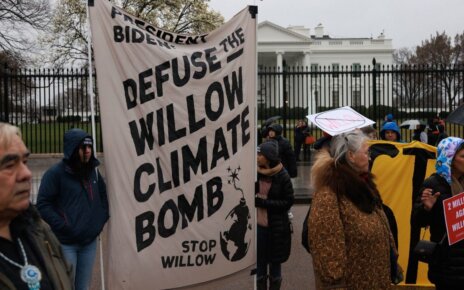On Thursday, Oct. 6, U.S. President Joe Biden issued a general pardon for those convicted of simple possession of marijuana on a federal level. Biden also announced that his administration will be reviewing the way marijuana is legally classed in the United States.
As it stands, marijuana is currently a Schedule I drug, which is defined by the US Drug Enforcement Administration (DEA) as “drugs, substances, or chemicals…with no currently accepted medical use and a high potential for abuse.” Other Schedule I drugs include heroin and LSD. Despite the DEA’s definition, numerous states permit and operate medical marijuana programs for those suffering from certain diseases, most notably different types of cancers.
The charge of simple possession is governed under the 1971 Controlled Substances Act, which is Congressional legislation that established the tiered schedule system alongside general drug regulation. While data is not fully available on the definite number of people who will be pardoned, the New York Times reports that “about 6,500 people were convicted of simple possession between 1992 and 2021.” Those convicted under the statutes of the District of Columbia will also be granted a pardon.
The New York Times also reported that “there are no people now serving time in federal prisons solely for marijuana possession.” Because of this, the ramifications of this decision will be mostly social, with a roadblock to employment and other aspects of life such as housing and school enrollment removed—an issue of drug reform that civil rights groups have campaigned on for decades.
Oliver Gaines, a senior history student, said that “the Presidential pardon to expunge prior marijuana possession offenses in the United States is crucial to promote true equality in America. It is well known that marijuana possession charges disproportionately affect individuals of color.”
In his pardon memo, Biden cited that while White, Hispanic, and Black Americans use cannabis at similar rates, those who are Black and Brown are disproportionately charged with marijuana crimes.
The pardon does not provide clemency to those convicted of distributing or selling marijuana. To further bolster his federal pardon, Biden encouraged American governors to issue their own pardon of marijuana charges on the state level.
New Jersey Governor Phil Murphy, despite the state’s legalization of marijuana, has yet to issue a pardon. However, former NJ Attorney General Gurbir Grewal issued a directive to prosecutors to waive mandatory minimum prison terms for nonviolent drug crimes in 2021.
Responses to the pardon have been largely supportive of the decision, with many making mention of the legacy of the War on Drugs. Speaking to NPR, Patrice Willoughby, a prominent National Association for the Advancement of Colored People (NAACP) official, said that “the failed policies on drug criminalization have ensnared many on nonviolent, marijuana offenses…and this has derailed hundreds of thousands, if not millions, of people from conduct which is legal and which is disproportionately applied to the African American community.”
Opposition to the pardon are mostly mute, with more or less no prominent Republicans criticizing Joe Biden’s decision to provide clemency for those convicted of simple possession.
Raina Morse, a freshman sociology student with a minor in gender studies, said, “I’m from Colorado where marijuana has been legal for quite a while. It’s such a horrific injustice that mostly black and brown people have been imprisoned for marijuana possession while white folks have barely ever been criminalized for it and in more recent history have been profiting from it.”
Gaines, in agreement with Morse, also said, “It is unfair that states profit off the identical item others were incarcerated for.”
Morse concluded, “I’m so, so glad that he’s offering this pardon and I hope it leads to lots of black and brown folks being re-enfranchised.”
Spencer Keats, an engineer who works for the Monmouth County Government, said that he’s “all for pardoning people. I am glad the President is making a distinction between those who distribute and sell and those who use it recreationally. However, I also question the President’s timing. It always seems that when he makes major announcements, it coincides with the midterm elections.”
Criticism of Joe Biden for making numerous significant decisions so close to the midterms has been a common talking point in the United States, with many suggesting that Biden may be using these issues as tools for bettering midterm results rather than actually trying to resolve the issues.
On the campaign trail, Biden made a pledge to decriminalize marijuana. While the pardoning does not legalize possession of marijuana, the decision to pardon those charged with simple possession is seen by many as a step in the right direction.



